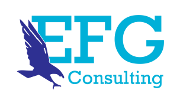As the United Arab Emirates (U.A.E.) approaches its 50th birthday it has its sights set on recovery and transformation
For the last 49 years, the U.A.E. has made efforts to foster an attractive business environment, which has been recognized with numerous accolades, including achieving a place in rankings as one of the happiest and one of the most competitive countries in the world.
As it readies itself to celebrate its 50th year in 2021, the COVID-19 pandemic has introduced a new set of challenges for the U.A.E., with the oil-exporting destination particularly sensitive to the reduced global demand for oil, as well as the major disruptions in global travel and tourism.
Economic recovery
The Central Bank of the U.A.E. and federal and local governments have introduced various fiscal measures and bank initiatives in an effort to mitigate disruptions on the economy. The central bank launched a Targeted Economic Support Scheme (TESS), releasing $70 billion to support liquidity needs, which roughly accounts for 20% of the country’s GDP.
On the fiscal front, the government announced an $8.7 billion stimulus package, which included: $4.4 billion approved by the federal government to support the private sector; $400 million in measures by the government of Dubai to reduce government fees and provide additional water and electricity subsidies; and $2.5 billion announced by the government of Abu Dhabi as . part of the ongoing “Ghadan-21” fiscal stimulus program. Government spending is expected to have increased nearly 28% in 2020.
Promising signs of recovery have been evident in the most recent economic data. While employment declined on average in the second quarter, it almost recovered in June 2020, according to the central bank. The Department of Culture and Tourism in Abu Dhabi has also announced a 46% increase in hotel revenues in the third quarter of 2020 compared to the second quarter, with a 95% increase in the number of guests.
Investment hub
Despite the challenges, the U.A.E. has made key regulatory changes with the aim of creating a resilient investment climate.
In 2019, the U.A.E. was the largest recipient of foreign direct investment in the Middle East, accounting for half of total investment in the region, with $14 billion in FDI inflows, up from $10.4 billion recorded the previous year. A report by UNCTAD attributes the rise in FDI inflows to major investment in oil and gas, primarily in the Abu Dhabi National Oil Company (ADNOC). The U.A.E. also rejoined the top 25 countries in the Kearney 2020 Foreign Direct Investment (FDI) Confidence Index at 19th place, which surveys more than 500 senior executives on their investment appetite.
While the Central Bank of the U.A.E. expects FDI to fall in 2020, key regulatory changes, such as annulling the requirement for commercial companies to have a major Emirati shareholder or agent and providing full foreign ownership of onshore companies, should support the business environment post-pandemic. Dubai’s Expo 2020, which has been postponed to 2021, is also expected to stimulate foreign investment in innovative small businesses. The World Bank’s Doing Business 2020 report reiterated the sentiment, ranking the U.A.E. at 16 out of 190 countries, noting the country has reduced fees involved in starting a business and made international trade easier.
ADNOC has also inked major deals this year, including the historic $20.7 billion Energy Infrastructure Deal in its gas pipeline business, which is set to bring in $10.1 billion in foreign direct investment to the U.A.E. from a variety of international investors. The state owned oil company is set to reinject $43.5 billion into its local economy through its newly-announced action plan to increase its capital investment to $122 billion over the next five years.
The U.A.E. has also cemented its status as a regional hub for startups and small businesses, with 33 of the 50 startups in Forbes Middle East’s list of “The Middle East’s 50 Most Funded Startups 2020” headquartered in the country. Top of the list was technology-enabled agribusiness Pure Harvest Farms, which raised $135.8 million in 2020. Managed cloud kitchen platform, Kitopi, raised $89 million. Dubai has since announced the launch of Nasdaq Dubai Growth Market, which will help startups and small and medium enterprises to raise capital.
Source: Forbes Middle East

